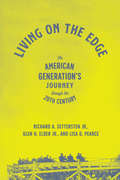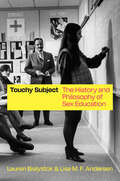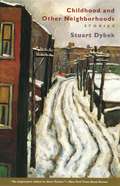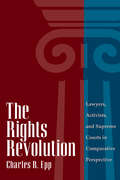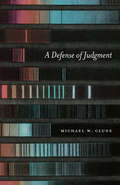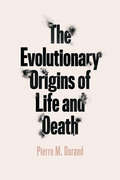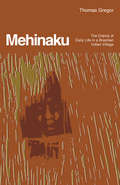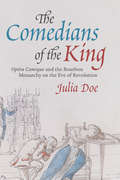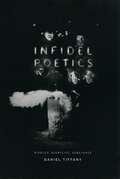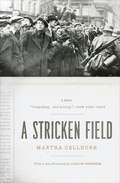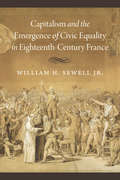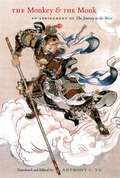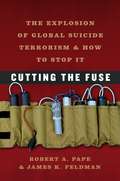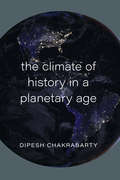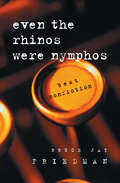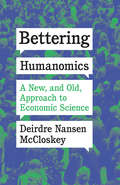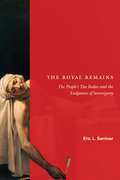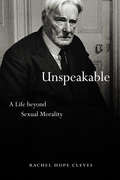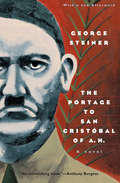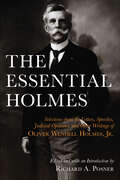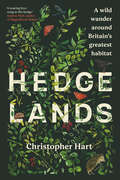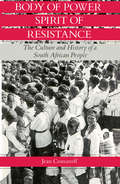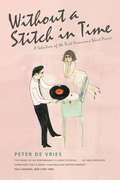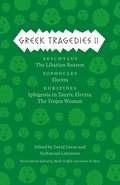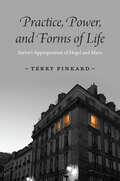- Table View
- List View
Living on the Edge: An American Generation’s Journey through the 20th Century
by Richard A. Settersten Jr. Glen H. Elder Lisa D. PearceHistory carves its imprint on human lives for generations after. When we think of the radical changes that transformed America during the twentieth century, our minds most often snap to the fifties and sixties: the Civil Rights Movement, changing gender roles, and new economic opportunities all point to a decisive turning point. But these were not the only changes that shaped our world, and in Living on the Edge, we learn that rapid social change and uncertainty also defined the lives of Americans born at the turn of the twentieth century. The changes they cultivated and witnessed affect our world as we understand it today. Drawing from the iconic longitudinal Berkeley Guidance Study, Living on the Edge reveals the hopes, struggles, and daily lives of the 1900 generation. Most surprising is how relevant and relatable the lives and experiences of this generation are today, despite the gap of a century. From the reorganization of marriage and family roles and relationships to strategies for adapting to a dramatically changing economy, the challenges faced by this earlier generation echo our own time. Living on the Edge offers an intimate glimpse into not just the history of our country, but the feelings, dreams, and fears of a generation remarkably kindred to the present day.
Touchy Subject: The History and Philosophy of Sex Education (History And Philosophy Of Education Ser.)
by Lauren Bialystok Lisa M.F. AndersenA case for sex education that puts it in historical and philosophical context. In the United States, sex education is more than just an uncomfortable rite of passage: it's a political hobby horse that is increasingly out of touch with young people’s needs. In Touchy Subject, philosopher Lauren Bialystok and historian Lisa M. F. Andersen unpack debates over sex education, explaining why it’s worth fighting for, what points of consensus we can build upon, and what sort of sex education schools should pursue in the future. Andersen surveys the history of school-based sex education in the United States, describing the key question driving reform in each era. In turn, Bialystok analyzes the controversies over sex education to make sense of the arguments and offer advice about how to make educational choices today. Together, Bialystok and Andersen argue for a novel framework, Democratic Humanistic Sexuality Education, which exceeds the current conception of “comprehensive sex education” while making room for contextual variation. More than giving an honest run-down of the birds and the bees, sex education should respond to the features of young people’s evolving worlds, especially the digital world, and the inequities that put some students at much higher risk of sexual harm than others. Throughout the book, the authors show how sex education has progressed and how the very concept of “progress” remains contestable.
Childhood and Other Neighborhoods: Stories
by Stuart DybekIn Stuart Dybek's Chicago, wonder lurks in unexpected places—in garbage-strewn alleys, gloomy basement apartments, abandoned rooms at the top of rickety stairs periodically rumbled by passing el trains. Transformed through the wide eyes of Dybek's adolescent heroes, these grimy urban backwaters become exotic landscapes of fear-filled possibility, of dreams not yet turned to nightmares. Chronicling what happens when Old World faith meets the dark side of the American dream, Dybek's poignant stories of coming of age in Chicago alternately appall, amaze, and just simply entertain.
The Rights Revolution: Lawyers, Activists, and Supreme Courts in Comparative Perspective
by Charles R. EppIt is well known that the scope of individual rights has expanded dramatically in the United States over the last half-century. Less well known is that other countries have experienced "rights revolutions" as well. Charles R. Epp argues that, far from being the fruit of an activist judiciary, the ascendancy of civil rights and liberties has rested on the democratization of access to the courts—the influence of advocacy groups, the establishment of governmental enforcement agencies, the growth of financial and legal resources for ordinary citizens, and the strategic planning of grass roots organizations. In other words, the shift in the rights of individuals is best understood as a "bottom up," rather than a "top down," phenomenon.The Rights Revolution is the first comprehensive and comparative analysis of the growth of civil rights, examining the high courts of the United States, Britain, Canada, and India within their specific constitutional and cultural contexts. It brilliantly revises our understanding of the relationship between courts and social change.
A Defense of Judgment
by Michael W. CluneTeachers of literature make judgments about value. They tell their students which works are powerful, beautiful, surprising, strange, or insightful—and thus, which are more worthy of time and attention than others. Yet the field of literary studies has largely disavowed judgments of artistic value on the grounds that they are inevitably rooted in prejudice or entangled in problems of social status. For several decades now, professors have called their work value-neutral, simply a means for students to gain cultural, political, or historical knowledge. ?Michael W. Clune’s provocative book challenges these objections to judgment and offers a positive account of literary studies as an institution of aesthetic education. It is impossible, Clune argues, to separate judgments about literary value from the practices of interpretation and analysis that constitute any viable model of literary expertise. Clune envisions a progressive politics freed from the strictures of dogmatic equality and enlivened by education in aesthetic judgment, transcending consumer culture and market preferences. Drawing on psychological and philosophical theories of knowledge and perception, Clune advocates for the cultivation of what John Keats called “negative capability,” the capacity to place existing criteria in doubt and to discover new concepts and new values in artworks. Moving from theory to practice, Clune takes up works by Keats, Emily Dickinson, Gwendolyn Brooks, Samuel Beckett, and Thomas Bernhard, showing how close reading—the profession’s traditional key skill—harnesses judgment to open new modes of perception.
The Revolutionary Origins of Life and Death
by Pierre M. DurandThe question of why an individual would actively kill itself has long been an evolutionary mystery. Pierre M. Durand’s ambitious book answers this question through close inspection of life and death in the earliest cellular life. As Durand shows us, cell death is a fascinating lens through which to examine the interconnectedness, in evolutionary terms, of life and death. It is a truism to note that one does not exist without the other, but just how does this play out in evolutionary history? These two processes have been studied from philosophical, theoretical, experimental, and genomic angles, but no one has yet integrated the information from these various disciplines. In this work, Durand synthesizes cellular studies of life and death looking at the origin of life and the evolutionary significance of programmed cellular death. The exciting and unexpected outcome of Durand’s analysis is the realization that life and death exhibit features of coevolution. The evolution of more complex cellular life depended on the coadaptation between traits that promote life and those that promote death. In an ironic twist, it becomes clear that, in many circumstances, programmed cell death is essential for sustaining life.
Mehinaku: The Drama of Daily Life in a Brazilian Indian Village
by Thomas GregorThomas Gregor sees the Mehinaku Indians of central Brazil as performers of roles, engaged in an ongoing improvisational drama of community life. The layout of the village and the architecture of the houses make the community a natural theater in the round, rendering the villagers' actions highly visible and audible. Lacking privacy, the Mehinaku have become masters of stagecraft and impression management, enthusiastically publicizing their good citizenship while ingeniously covering up such embarrassments as extramarital affairs and theft.
The Comedians of the King: Opéra Comique and the Bourbon Monarchy on the Eve of Revolution
by Julia DoeLyric theater in ancien régime France was an eminently political art, tied to the demands of court spectacle. This was true not only of tragic opera (tragédie lyrique) but also its comic counterpart, opéra comique, a form tracing its roots to the seasonal trade fairs of Paris. While historians have long privileged the genre’s popular origins, opéra comique was brought under the protection of the French crown in 1762, thus consolidating a new venue where national music might be debated and defined. In The Comedians of the King, Julia Doe traces the impact of Bourbon patronage on the development of opéra comique in the turbulent prerevolutionary years. Drawing on both musical and archival evidence, the book presents the history of this understudied genre and unpacks the material structures that supported its rapid evolution at the royally sponsored Comédie-Italienne. Doe demonstrates how comic theater was exploited in, and worked against, the monarchy’s carefully cultivated public image—a negotiation that became especially fraught after the accession of the music-loving queen, Marie Antoinette. The Comedians of the King examines the aesthetic and political tensions that arose when a genre with popular foundations was folded into the Bourbon propaganda machine, and when a group of actors trained at the Parisian fairs became official representatives of the sovereign, or comédiens ordinaires du roi.
Infidel Poetics: Riddles, Nightlife, Substance
by Daniel TiffanyPoetry has long been regarded as the least accessible of literary genres. But how much does the obscurity that confounds readers of a poem differ from, say, the slang that seduces listeners of hip-hop? Infidel Poetics examines not only the shared incomprensibilities of poetry and slang, but poetry's genetic relation to the spectacle of underground culture. Charting connections between vernacular poetry, lyric obscurity, and types of social relations—networks of darkened streets in preindustrial cities, the historical underworld of taverns and clubs, the subcultures of the avant-garde—Daniel Tiffany shows that obscurity in poetry has functioned for hundreds of years as a medium of alternative societies. For example, he discovers in the submerged tradition of canting poetry and its eccentric genres—thieves’ carols, drinking songs, beggars’ chants—a genealogy of modern nightlife, but also a visible underworld of social and verbal substance, a demimonde for sale. Ranging from Anglo-Saxon riddles to Emily Dickinson, from the icy logos of Parmenides to the monadology of Leibniz, from Mother Goose to Mallarmé, Infidel Poetics offers an exhilarating account of the subversive power of obscurity in word, substance, and deed.
A Stricken Field: A Novel
by Martha GellhornMartha Gellhorn was one of the first—and most widely read—female war correspondents of the twentieth century. She is best known for her fearless reporting in Europe before and during WWII and for her brief marriage to Ernest Hemingway, but she was also an acclaimed novelist.In 1938, before the Munich pact, Gellhorn visited Prague and witnessed its transformation from a proud democracy preparing to battle Hitler to a country occupied by the German army. Born out of this experience, A Stricken Field follows a journalist who returns to Prague after its annexation and finds her efforts to obtain help for the refugees and to convey the shocking state of the country both frustrating and futile. A convincing account of a people under the brutal oppression of the Gestapo, A Stricken Field is Gellhorn’s most powerful work of fiction. “[A] brave, final novel. Its writing is quick with movement and with sympathy; its people alive with death, if one can put it that way. It leaves one with aching heart and questing mind.”—New York Herald Tribune “The translation of [Gellhorn’s] personal testimony into the form of a novel has . . . force and point.”—Times Literary Supplement
Capitalism and the Emergence of Civic Equality in Eighteenth-Century France (The Parker Novels)
by William H. Sewell Jr.There is little doubt that the French Revolution of 1789 changed the course of Western history. But why did the idea of civic equality—a distinctive signature of that revolution—find such fertile ground in France? How might changing economic and social realities have affected political opinions? William H. Sewell Jr. argues that the flourishing of commercial capitalism in eighteenth-century France introduced a new independence, flexibility, and anonymity to French social life. By entering the interstices of this otherwise rigidly hierarchical society, expanded commodity exchange colored everyday experience in ways that made civic equality thinkable, possible, even desirable, when the crisis of the French Revolution arrived. Sewell ties together masterful analyses of a multitude of interrelated topics: the rise of commerce, the emergence of urban publics, the careers of the philosophes, commercial publishing, patronage, political economy, trade, and state finance. Capitalism and the Emergence of Civic Equality in Eighteenth-Century France offers an original interpretation of one of history’s pivotal moments.
The Monkey and the Monk: An Abridgment of The Journey to the West (Women In Culture And Society Ser.)
by Anthony C. YuAnthony C. Yu’s celebrated translation of The Journey to the West reinvigorated one of Chinese literature’s most beloved classics for English-speaking audiences when it first appeared thirty years ago. Yu’s abridgment of his four-volume translation, The Monkey and the Monk, finally distills the epic novel’s most exciting and meaningful episodes without taking anything away from their true spirit. These fantastic episodes recount the adventures of Xuanzang, a seventh-century monk who became one of China’s most illustrious religious heroes after traveling for sixteen years in search of Buddhist scriptures. Powerfully combining religious allegory with humor, fantasy, and satire, accounts of Xuanzang’s journey were passed down for a millennium before culminating in the sixteenth century with The Journey to the West. Now, readers of The Monkey and the Monk can experience the full force of his lengthy quest as he travels to India with four animal disciples, most significant among them a guardian-monkey known as “the Great Sage, Equal to Heaven.” Moreover, in its newly streamlined form, this acclaimed translation of a seminal work of world literature is sure to attract an entirely new following of students and fans. “A new translation of a major literary text which totally supersedes the best existing version. . . . It establishes beyond contention the position of The Journey to the West in world literature, while at the same time throwing open wide the doors to interpretive study on the part of the English audience.”—Modern Language Notes, on the unabridged translation
Cutting the Fuse: The Explosion of Global Suicide Terrorism and How to Stop It (Chicago Series On International And Dome Ser.)
by Robert A. Pape James K FeldmanCutting the Fuse offers a wealth of new knowledge about the origins of suicide terrorism and strategies to stop it. Robert A. Pape and James K. Feldman have examined every suicide terrorist attack worldwide from 1980 to 2009, and the insights they have gleaned from that data fundamentally challenge how we understand the root causes of terrorist campaigns today—and reveal why the War on Terror has been ultimately counterproductive. Through a close analysis of suicide campaigns by Al Qaeda and other terrorist organizations in Iraq, Afghanistan, Pakistan, Lebanon, Israel, Chechnya, and Sri Lanka, the authors provide powerful new evidence that, contrary to popular and dangerously mistaken belief, only a tiny minority of these attacks are motivated solely by religion. Instead, the root cause is foreign military occupation, which triggers secular and religious people alike to carry out suicide attacks.Cutting the Fuse calls for new, effective solutions that America and its allies can sustain for decades, relying less on ground troops in Muslim countries and more on offshore, over-the-horizon military forces along with political and economic strategies that empower local communities to stop terrorists in their midst.
The Climate of History in a Planetary Age
by Dipesh ChakrabartyFor the past decade, historian Dipesh Chakrabarty has been one of the most influential scholars addressing the meaning of climate change. Climate change, he argues, upends long-standing ideas of history, modernity, and globalization. The burden of The Climate of History in a Planetary Age is to grapple with what this means and to confront humanities scholars with ideas they have been reluctant to reconsider—from the changed nature of human agency to a new acceptance of universals. Chakrabarty argues that we must see ourselves from two perspectives at once: the planetary and the global. This distinction is central to Chakrabarty’s work—the globe is a human-centric construction, while a planetary perspective intentionally decenters the human. Featuring wide-ranging excursions into historical and philosophical literatures, The Climate of History in a Planetary Age boldly considers how to frame the human condition in troubled times. As we open ourselves to the implications of the Anthropocene, few writers are as likely as Chakrabarty to shape our understanding of the best way forward.
Even the Rhinos Were Nymphos: Best Nonfiction
by Bruce Jay FriedmanA few years ago, Christopher Buckley wrote of Bruce Jay Friedman in the New York Times Book Review that he "has been likened to everyone from J. D. Salinger to Woody Allen," but that "he is: Bruce Jay Friedman, sui generis, and no mean thing. No further comparisons are necessary." We are happy to report that he remains the same Bruce Jay Friedman in his unique, unblinking, and slightly tilted essays—collected here for the first time—in Even the Rhinos Were Nymphos. A butler school in Houston, a livestock auction in Little Rock, a home for "frozen guys" in California, JFK's humidor in Manhattan—all are jumping off points for Friedman's baleful and sharply satirical scrutiny of American life and behavior in the second half of the twentieth century. Travel with Friedman from Harlem to Hollywood, from Port-au-Prince to Etta's Eat Shop in Chicago. In these pieces, which were published in literary and mass-circulation magazines from the 1960s to the 1990s, you'll meet such luminaries as Castro and Clinton, Natalie Wood and Clint Eastwood, and even Friedman's friends Irwin Shaw, Nelson Algren, and Mario Puzo. Friedman is a master of the essay, whether the subject is crime reporting ("Lessons of the Street"), Hollywood shenanigans ("My Life among the Stars"), or his outrageous adventures as the editor of pulp magazines (the classic "Even the Rhinos Were Nymphos"). We could sing his praises as a journalist, humorist, and social critic. But, as Buckley tells us, being Bruce Jay Friedman is enough. Bruce Jay Friedman is the author of seven novels (including The Dick, Stern, and A Mother's Kisses), four collections of short stories, four full-length plays (including Scuba Duba and Steambath), and the screenplays for the movies Splash and Stir Crazy.
Bettering Humanomics: A New, and Old, Approach to Economic Science
by Deirdre Nansen McCloskeyDeirdre Nansen McCloskey's latest meticulous work examines how economics can become a more "human" science. Economic historian Deirdre Nansen McCloskey has distinguished herself through her writing on the Great Enrichment and the betterment of the poor—not just materially but spiritually. In Bettering Humanomics she continues her intellectually playful yet rigorous analysis with a focus on humans rather than the institutions. Going against the grain of contemporary neo-institutional and behavioral economics which privilege observation over understanding, she asserts her vision of “humanomics,” which draws on the work of Bart Wilson, Vernon Smith, and most prominently, Adam Smith. She argues for an economics that uses a comprehensive understanding of human action beyond behaviorism. McCloskey clearly articulates her points of contention with believers in “imperfections,” from Samuelson to Stiglitz, claiming that they have neglected scientific analysis in their haste to diagnose the ills of the system. In an engaging and erudite manner, she reaffirms the global successes of market-tested betterment and calls for empirical investigation that advances from material incentives to an awareness of the human within historical and ethical frameworks. Bettering Humanomics offers a critique of contemporary economics and a proposal for an economics as a better human science.
The Royal Remains: The People's Two Bodies and the Endgames of Sovereignty
by Eric L. Santner"The king is dead. Long live the king!" In early modern Europe, the king's body was literally sovereign—and the right to rule was immediately transferrable to the next monarch in line upon the king's death. In The Royal Remains, Eric L. Santner argues that the "carnal" dimension of the structures and dynamics of sovereignty hasn't disappeared from politics. Instead, it migrated to a new location—the life of the people—where something royal continues to linger in the way we obsessively track and measure the vicissitudes of our flesh. Santner demonstrates the ways in which democratic societies have continued many of the rituals and practices associated with kingship in displaced, distorted, and usually, unrecognizable forms. He proposes that those strange mental activities Freud first lumped under the category of the unconscious—which often manifest themselves in peculiar physical ways—are really the uncanny second life of these "royal remains," now animated in the body politic of modern neurotic subjects. Pairing Freud with Kafka, Carl Schmitt with Hugo von Hofmannsthal,and Ernst Kantorowicz with Rainer Maria Rilke, Santner generates brilliant readings of multiple texts and traditions of thought en route to reconsidering the sovereign imaginary. Ultimately, The Royal Remains locates much of modernity—from biopolitical controversies to modernist literary experiments—in this transition from subjecthood to secular citizenship. This major new work will make a bold and original contribution to discussions of politics, psychoanalysis, and modern art and literature.
Unspeakable: A Life beyond Sexual Morality
by Rachel Hope ClevesThe sexual exploitation of children by adults has a long, fraught history. Yet how cultures have reacted to it is shaped by a range of forces, beliefs, and norms, like any other social phenomenon. Changes in how Anglo-American culture has understood intergenerational sex can be seen with startling clarity in the life of British writer Norman Douglas (1868–1952), who was a beloved and popular author, a friend of luminaries like Graham Greene, Aldous Huxley, and D.H. Lawrence, and an unrepentant and uncloseted pederast. Rachel Hope Cleves’s careful study opens a window onto the social history of intergenerational sex in the nineteenth and twentieth centuries, revealing how charisma, celebrity, and contemporary standards protected Douglas from punishment—until they didn’t.Unspeakable approaches Douglas as neither monster nor literary hero, but as a man who participated in an exploitative sexual subculture that was tolerated in ways we may find hard to understand. Using letters, diaries, memoirs, police records, novels, and photographs—including sources by the children Douglas encountered—Cleves identifies the cultural practices that structured pedophilic behaviors in England, Italy, and other places Douglas favored. Her book delineates how approaches to adult-child sex have changed over time and offers insight into how society can confront similar scandals today, celebrity and otherwise.
The Portage to San Cristobal of A. H.: A Novel (Phoenix Fiction)
by George SteinerImagine, thirty years after the end of World War II, Israeli Nazi-hunters, some of whom lost relatives in the gas chambers of Nazi Germany, find a silent old man deep in the Amazon jungle. He is Adolph Hitler. The narrative that follows is a profound and disturbing exploration of the nature of guilt, vengeance, language, and the power of evil—each undiminished over time. George Steiner's stunning novel, now with a new afterword, will continue to provoke our thinking about Nazi Germany's unforgettable past. "Two readings have convinced me that this is a fiction of extraordinary power and thoughtfulness. . . . [A] remarkable novel."—Bernard Bergonzi, Times Literary Supplement "In this tour de force Mr. Steiner makes his reader re-examine, to whatever conclusions each may choose, a history from which we would prefer to avert our eyes."—Edmund Fuller, Wall Street Journal "Portage largely avoids both the satisfactions of the traditional novel and the horrifying details of Holocaust literature. Instead, Steiner has taken as his model the political imaginings of an Orwell or Koestler. . . . He has produced a philosophic fantasy of remarkable intensity."—Otto Friedrich, Time
The Essential Holmes: Selections from the Letters, Speeches, Judicial Opinions, and Other Writings of Oliver Wendell Holmes, Jr.
by Oliver Wendell Holmes Jr.Oliver Wendell Holmes, Jr., has been called the greatest jurist and legal scholar in the history of the English-speaking world. In this collection of his speeches, opinions, and letters, Richard Posner reveals the fullness of Holmes' achievements as judge, historian, philosopher, and master of English style. Thematically arranged, the volume covers a rich variety of subjects from aging and death to themes in politics, personalities, and law. Posner's substantial introduction firmly places this wealth of material in its proper biographical and historical context. "A first-rate prose stylist, [Holmes] was perhaps the most quotable of all judges, as this ably edited volume shows."—Washington Post Book World "Brilliantly edited, lucidly organized, and equipped with a compelling introduction by Judge Posner, [this book] is one of the finest single-volume samplers of any author's work I have seen. . . . Posner has fully captured the acrid tang of him in this masterly anthology."—Terry Teachout, National Review "Excellent. . . . A worthwhile contribution to current American political/legal discussions."—Library Journal "The best source for the reader who wants a first serious acquaintance with Holmes."—Thomas C. Grey, New York Review of Books
Hedgelands: A wild wander around Britain’s greatest habitat
by Christopher Hart‘[A] joyously readable book— it riffs along like breeze in the hedgerow.’ John Lewis-Stempel in Country Life ‘Hart’s passion for the potential that resides here is intoxicating. Occasionally an environmental solution comes along that is so breathtakingly simple you can’t believe that not everyone is already doing it.’ Sunday Times ‘[Hart] has written an eye-opening and inspiring book which will leave you with a deep appreciation of these wonderful habitats’ Daily Mail In this joyous journey around the wild edges of Britain, Christopher Hart takes us through the life, ecology and history of the humble British hedge, showing us how this much-loved (but somewhat overlooked) feature is inextricably woven into our language, history and culture. Hedges – or hedgerows – have long been an integral part of the British landscape; a bastion of privacy for our gardens, a protective presence on winding country lanes and a vital hiding place for birds and beasts on farmland. This man-made marvel is finally getting its time in the sun. Recognised as an environmental hero and a powerful climate ally, hedgerow is now considered the greatest edge habitat on earth, offering thorny scrub, mature woodland, grassland and even wetland. It plays a critical role in carbon sequestration and provides essential protection against the elements. Hedgelands highlights the hawthorn and hazel of ancient hedges; the abundance of wildlife, from the elusive dunnock to the striking nightingale, the industrious hedgehog to the little harvest mouse; and the free pickings that the hedgerow offers, making it an essential – and delicious – element of any countryside ramble. Hedgelands will tell you everything you never thought you needed to know about this wild, diverse and rich habitat – and you might even look at your humble hedge in a whole new way. ‘Hedgelands combines history, celebration, lament and warning. Christopher Hart is a companionable writer, and makes a powerful case that, at a time of ecological hazard, well-nurtured hedges can play an astonishing role in buttressing the future.’ The Spectator ‘A wonderful history of the threads that stitch the British countryside together.’ Jake Fiennes, author of Land Healer ‘A passionate celebration and exploration of our wonderful hedgerows. You’ll be swept along by Hart’s intoxicating enthusiasm.’ Dave Goulson, author of Silent Earth
Body of Power, Spirit of Resistance: The Culture and History of a South African People
by Jean ComaroffIn this sophisticated study of power and resistance, Jean Comaroff analyzes the changing predicament of the Barolong boo Ratshidi, a people on the margins of the South African state. Like others on the fringes of the modern world system, the Tshidi struggle to construct a viable order of signs and practices through which they act upon the forces that engulf them. Their dissenting Churches of Zion have provided an effective medium for reconstructing a sense of history and identity, one that protests the terms of colonial and post-colonial society and culture.
Without a Stitch in Time: A Selection of the Best Humorous Short Pieces
by Peter De VriesHarking from the golden age of fiction set in American suburbia—the school of John Updike and Cheever—this work from the great American humorist Peter De Vries looks with laughter upon its lawns, its cocktails, and its slightly unreal feeling of comfort. Without a Stitch in Time, a selection of forty-six articles and stories written for the New Yorker between 1943 and 1973, offers pun-filled autobiographical vignettes that reveal the source of De Vries’s nervous wit: the cognitive dissonance between his Calvinist upbringing in 1920s Chicago and the all-too-perfect postwar world. Noted as much for his verbal fluidity and wordplay as for his ability to see humor through pain, De Vries will delight both new readers and old in this uproarious modern masterpiece.
Greek Tragedies II: Tbe Libation Bearers • Electra • Iphigenia in Tauris, Electra, The Trojan Women
by Sophocles Aeschylus EuripidesGreek Tragedies, Volume II contains Aeschylus’s “The Libation Bearers,” translated by Richmond Lattimore; Sophocles’s “Electra,” translated by David Grene; Euripides’s “Iphigenia among the Taurians,” translated by Anne Carson; Euripides’s “Electra,” translated by Emily Townsend Vermeule; and Euripides’s “The Trojan Women,” translated by Richmond Lattimore. Sixty years ago, the University of Chicago Press undertook a momentous project: a new translation of the Greek tragedies that would be the ultimate resource for teachers, students, and readers. They succeeded. Under the expert management of eminent classicists David Grene and Richmond Lattimore, those translations combined accuracy, poetic immediacy, and clarity of presentation to render the surviving masterpieces of Aeschylus, Sophocles, and Euripides in an English so lively and compelling that they remain the standard translations. Today, Chicago is taking pains to ensure that our Greek tragedies remain the leading English-language versions throughout the twenty-first century. In this highly anticipated third edition, Mark Griffith and Glenn W. Most have carefully updated the translations to bring them even closer to the ancient Greek while retaining the vibrancy for which our English versions are famous. This edition also includes brand-new translations of Euripides’ Medea, The Children of Heracles, Andromache, and Iphigenia among the Taurians, fragments of lost plays by Aeschylus, and the surviving portion of Sophocles’s satyr-drama The Trackers. New introductions for each play offer essential information about its first production, plot, and reception in antiquity and beyond. In addition, each volume includes an introduction to the life and work of its tragedian, as well as notes addressing textual uncertainties and a glossary of names and places mentioned in the plays. In addition to the new content, the volumes have been reorganized both within and between volumes to reflect the most up-to-date scholarship on the order in which the plays were originally written. The result is a set of handsome paperbacks destined to introduce new generations of readers to these foundational works of Western drama, art, and life.
Practice, Power, and Forms of Life: Sartre’s Appropriation of Hegel and Marx
by Terry PinkardPhilosopher Terry Pinkard revisits Sartre’s later work, illuminating a pivotal stance in Sartre’s understanding of freedom and communal action. Jean-Paul Sartre’s Critique of Dialectical Reason, released to great fanfare in 1960, has since then receded in philosophical visibility. As Sartre’s reputation is now making a comeback, it is time for a reappraisal of his later work. In Practice, Power, and Forms of Life, philosopher Terry Pinkard interprets Sartre’s late work as a fundamental reworking of his earlier ideas, especially in terms of his understanding of the possibility of communal action as genuinely free, which the French philosopher had previously argued was impossible. Pinkard reveals how Sartre was drawn back to Hegel, a move that was itself incited by Sartre’s newfound interest in Marxism. Pinkard argues that Sartre constructed a novel position on freedom that has yet to be adequately taken up and analyzed within philosophy and political theory. Through Sartre, Pinkard advances an argument that contributes to the history of philosophy as well as key debates on action and freedom.
